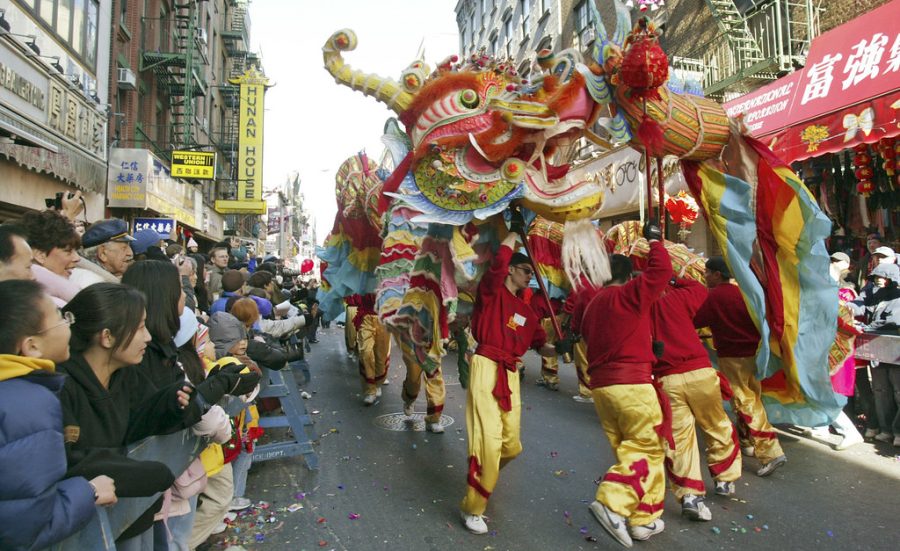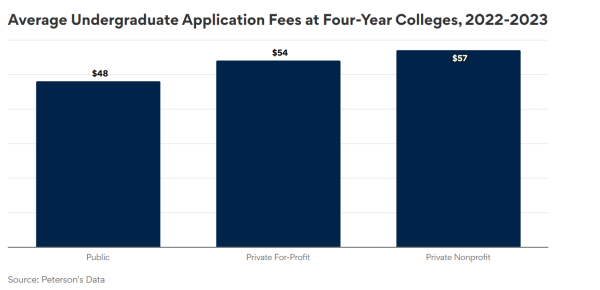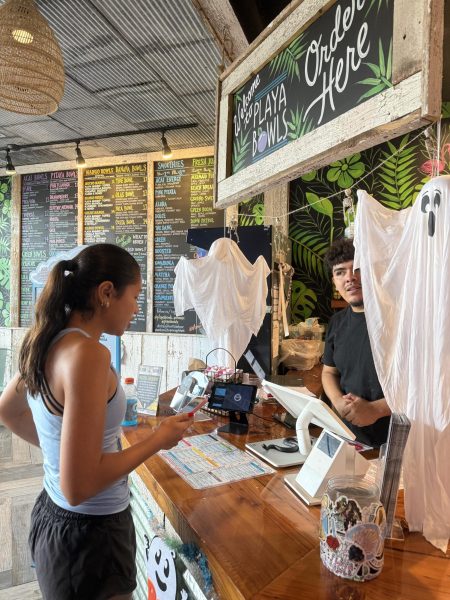Students usher in Year of Tiger on Lunar New Year
Photo used with permission from Google Commons
Celebrations of the Lunar New Year unfold in New York City’s Chinatown. The Lunar New Year was celebrated on Feb. 1 this year. For senior Sasha Annabel, celebrations including having “a big dinner with the entire family, and we go back to Indonesia or some of them come here.”
Bid the Year of the Ox farewell, as the Lunar New Year on Feb. 1 marked the beginning of the Year of the Tiger. The holiday aligned with a professional day this year, giving students the opportunity to celebrate with their families, though safety concerns amid the pandemic led students to mark the day with altered versions of their new year traditions.
Lunar New Year is the first day of the calendar year based on the lunar calendar, which measures months by the cycles of the moon. According to CNN, each year is designated an animal from the 12 animals of the Chinese zodiac calendar, and luck in the new year is dependent on the position of one’s Chinese zodiac sign in relation to Tai Sui, the stars opposite Jupiter. Because of its Chinese influences, the Lunar New Year is sometimes referred to as Chinese New Year, but celebrations of this event occur beyond China and in countries throughout Asia.
Under normal circumstances, senior Sasha Annabel celebrates the Lunar New Year with her family according to Indonesian traditions. “Usually, we have a big dinner with the entire family, and we go back to Indonesia or some of them come here. We have steamed fish, and it has to be one that has the tail and head still attached. We also have noodles for long life. Also, the adults give the kids money in red envelopes and you have to bow, especially to your grandparents, because they give you the most [money],” Annabel said.
This year, however, Annabel was limited by the pandemic to celebrating the new year with her immediate family. “Because of Covid, we couldn’t meet our other family members, and instead of a big dinner, we had takeout. The saddest thing, though, was that I didn’t get any red envelopes because I didn’t see any of my other family members. It was still a fun Lunar New Year night though,” Annabel said.
Senior Christopher Yeh was able to observe the Lunar New Year in the presence of his family without extensive interference from the pandemic. “Every year, we go eat Lunar New Year’s eve dinner at our grandma’s house with our family. After that, we exchange red pockets, in Chinese, they’re called hong bao, and spend the night catching up with each other. It wasn’t too much different, we just wore our masks when we weren’t eating,” Yeh said.
Senior Kanyanat Khotsanlee mixes Thai and Chinese cultural practices in her celebrations of the Lunar New Year. “The way we celebrate is half Thai and half Chinese. We have a table with food and we burn incense that we put on the food. We pray for the older generations, wishing them a happy new year. When the incense is gone, you eat the food. People pray for respect and the red envelopes are given from the older people to the younger people, if the younger people are still students. They don’t get envelopes if they aren’t students anymore,” Khotsanlee said.
Your donation will support the student journalists of Thomas S. Wootton High School. Your contribution will allow us to purchase equipment and cover our annual website hosting costs.
Hannah Rah is a 2022 graduate.







